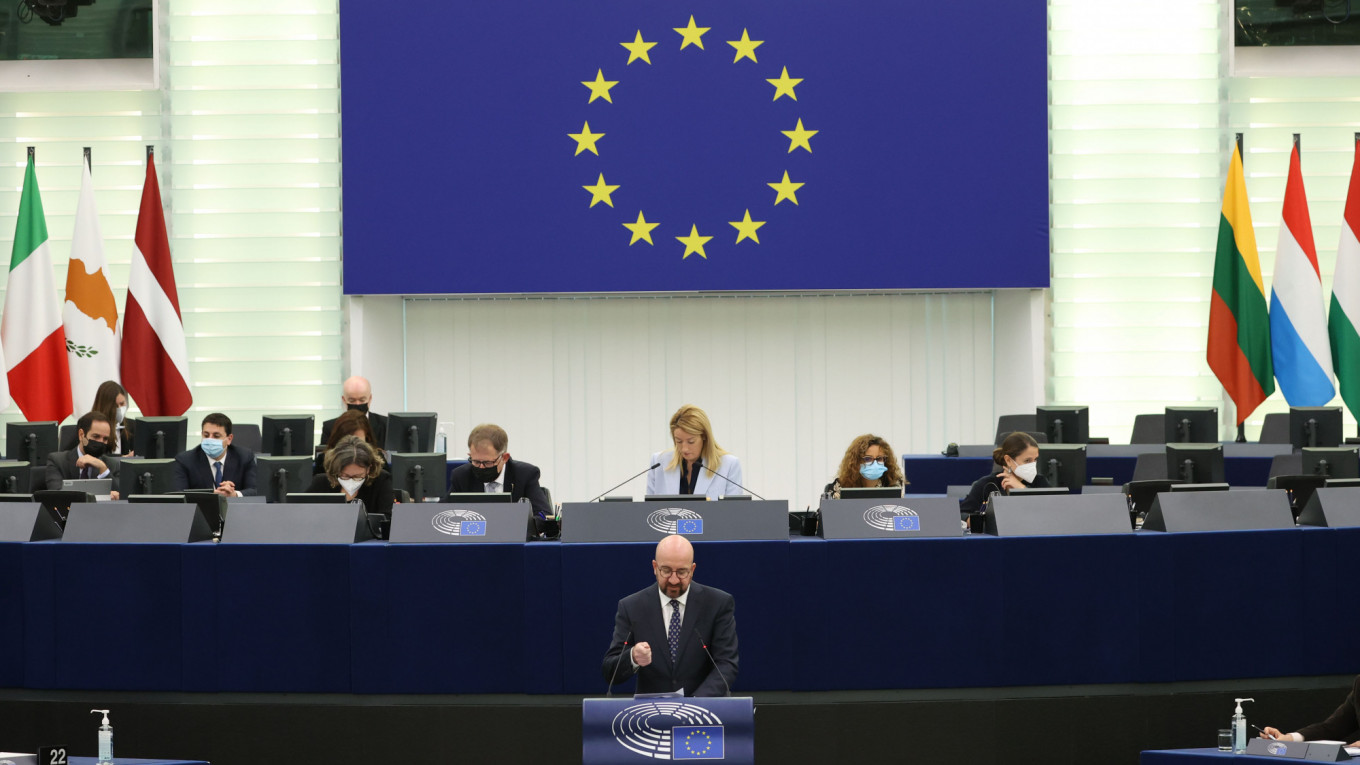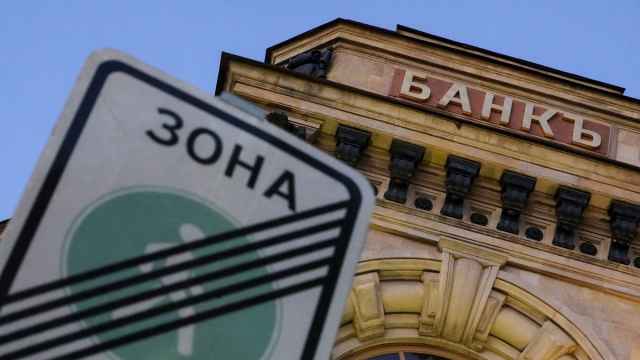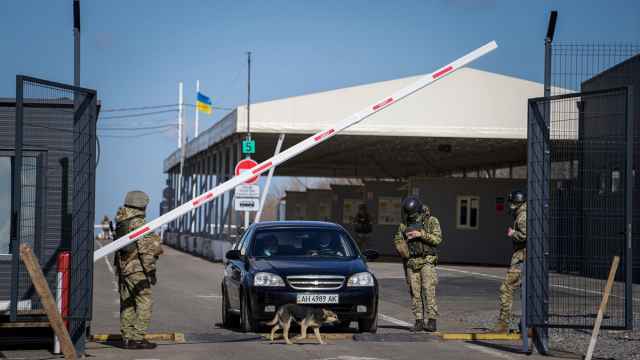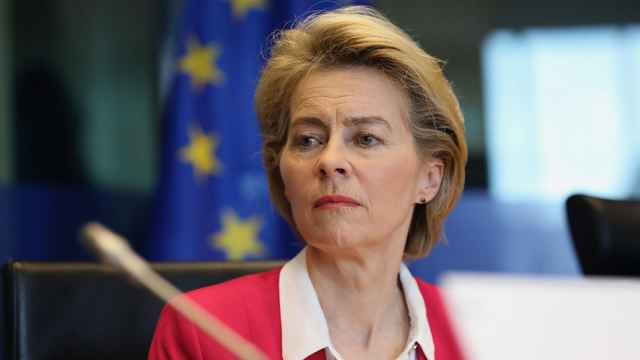The European Union on Thursday said it had approved an embargo on Russian coal and the closing of the bloc's ports to Russian vessels over the Ukraine war.
An official from the French presidency of the European Council said the moves spearhead a "very substantial" fifth round of sanctions against Moscow.
That package also includes a 10 billion euro ($10.9 billion) ban on exports to Russia, including high-tech goods, and the freezing of several Russian banks' assets.
In addition to the sanctions, the EU also backed a proposal to boost its funding of arms supplies to Ukraine by 500 million euros, taking it to a total of 1.5 billion euros.
European Council President Charles Michel said on Twitter the package would be "swiftly approved."
The new financial measures were proposed by the European Commission after the bodies of dozens of civilians were found last weekend in Bucha, near Kyiv.
It is the first time the Europeans have targeted the Russian energy sector, on which they are heavily dependent.
The EU nations import 45% of their coal from Russia, worth 4 billion euros a year.
The embargo will come into force at the beginning of August, 120 days after the publication of the new package in the EU's official journal, expected on Friday.
The list of Russian products banned from the EU is also being extended to include certain "critical raw materials and equipment" worth an estimated 5.5 billion euros a year to stop the financing of Moscow's war effort in Ukraine.
Russian and Belarusian road hauliers are now banned from operating in the EU, the French Presidency said in a series of tweets.
The EU's blacklist is also being expanded by more than 200 names, including Russian oligarchs and Vladimir Putin's two daughters, according to a document seen by AFP.
Russia "will suffer a long descent into economic, financial and technological isolation", European Commission President Ursula von der Leyen said on Twitter.
A Message from The Moscow Times:
Dear readers,
We are facing unprecedented challenges. Russia's Prosecutor General's Office has designated The Moscow Times as an "undesirable" organization, criminalizing our work and putting our staff at risk of prosecution. This follows our earlier unjust labeling as a "foreign agent."
These actions are direct attempts to silence independent journalism in Russia. The authorities claim our work "discredits the decisions of the Russian leadership." We see things differently: we strive to provide accurate, unbiased reporting on Russia.
We, the journalists of The Moscow Times, refuse to be silenced. But to continue our work, we need your help.
Your support, no matter how small, makes a world of difference. If you can, please support us monthly starting from just $2. It's quick to set up, and every contribution makes a significant impact.
By supporting The Moscow Times, you're defending open, independent journalism in the face of repression. Thank you for standing with us.
Remind me later.






